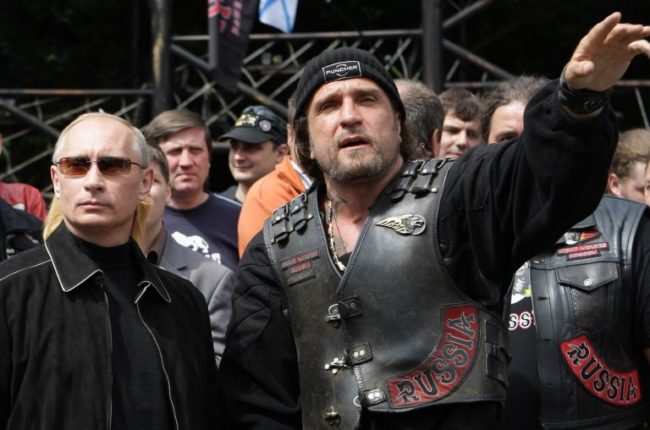
 Pro-Kremlin Russian biker gang the Night Wolves were refused entry to Georgia on 2 May, after around 50 bikers attempted to enter from Russia. However, at least one has already made it to Tbilisi.
Pro-Kremlin Russian biker gang the Night Wolves were refused entry to Georgia on 2 May, after around 50 bikers attempted to enter from Russia. However, at least one has already made it to Tbilisi.
They had previously announced their intention to visit Georgia to ‘commemorate the 72nd anniversary of the end of World War II’.
Earlier on 2 May, Georgian deputy Minister of Internal Affairs, Shalva Khutsishvili, said that the group ‘is not welcome in Georgia’, because the ‘spirit of their actions contradicts the celebrations of 9 May’.
On 3 May, Khutsishvili claimed that border guards had turned back the bikers for ‘various reasons’ after asking them about their travel purposes.
At least one member of the group has been spotted in Tbilisi. The Ministry said one member had crossed the border as a tourist ‘without identifying attributes’, before the gang had announced their plans. Border guards saw no reason not to let him in, the ministry said.
The Night Wolves were invited to Tbilisi by a local Pro-Kremlin-leaning youth group, the Youth Union, and its leader Irakli Kipiani, to mark Victory Day over Nazi Germany on 9 May.
Soon after the plans were announced, a petition with around 1,500 signatures appeared online urging the Georgian authorities not to let the group enter Georgia.
The Night Wolves visited Georgia in October 2013 and May 2015 and were met by protesters unhappy at the gang’s nationalist rhetoric and close ties to Russian President Vladimir Putin. The gang’s leader, Aleksandr ‘the Surgeon’ Zaldostanov, has been described as a good friend of Putin.
In 2015, while visiting Georgia to ‘commemorate 9 May’, the bikers wore the ribbon of St George, a controversial symbol which is sometimes associated with Russian nationalism.
The Night Wolves were denied entry to Poland earlier this year, Russian state agency Sputnik reported. They were also banned from entering Poland in 2016 and 2015 over ‘security concerns’.




 4 May 2017
4 May 2017


